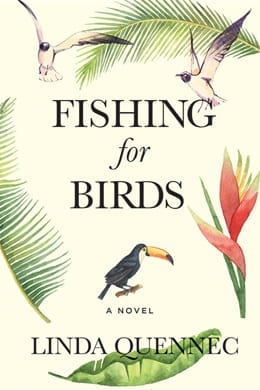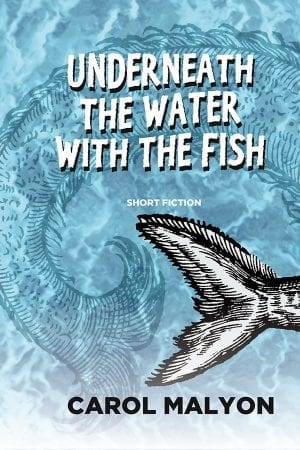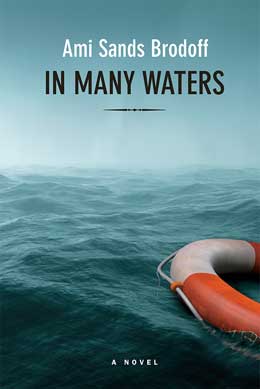Winner, American Book Fest 2019 Best Book Awards (Women’s Fiction)
Finalist, American Book Fest 2019 Best Book Awards (Literary Fiction)
Kate, a somewhat clumsy widow of thirty-two, flees her stifling hometown on Vancouver Island to live alone on an even smaller island in the Salish Sea. In so doing, she has vague expectations of solace and sanctuary, despite past experience. Instead she meets Ivy, a woman who through their conversations transports her to the intoxicating world of 1926 Cuba. Within the context of their friendship, Ivy’s past begins to unravel from a long-held silence, just as Kate finds herself confronting her relationship with the colourful community she’s known all her life, along with an unexpected visitor who threatens to remove all peace from her chosen refuge. Told from the perspectives of three narrators: Ivy, Kate, and Kate’s mother Nora, Fishing for Birds is a novel that juxtaposes the expectations we cling to so fiercely and the unexpected and sometimes unconventional things that turn up. The novel challenges traditional constructs of time, ethnicity, and relationship. Set against the tropical beauty of 1920s Cuba and the Northwest Coast of contemporary time, both the landscape and unique character of island life underscore the experiences of three very different women.
“Sharp, visceral, storytelling from Linda Quennec, a confident new voice in Canadian novel-writing.”
—Sarah Sheard, author of Krank, Almost Japanese, and other novels
Linda Quennec is a writer, traveller, and PhD student in Depth Psychology. An island-dweller at heart, she took inspiration for her novel Fishing for Birds from the natural beauty of Coastal British Columbia and the fascinating Isla de la Juventud (formerly Isla de Piños) where her German grandmother was raised. She holds an MFA in creative writing from Naropa University, and is a graduate of The Writers’ Studio at Simon Fraser University and The Humber School of Writing. Her work has appeared in Quills Canadian Poetry, 3Elements Review, Cirque, Emerge, and DoveTales literary journals. She lives with her husband and twin daughters just outside Vancouver, British Columbia.
It’s an opportunity. She can’t stay in tonight; the world will surely turn on its side without her there to breathe the perfumed night. Three months of hanging around her grandparents’ place. While she feels a mild stab of guilt for misleading them, she’s restless and knows that there will never be another opportunity like this once she’s left the island. She’d have no chance at any sort of freedom if her parents were here. She silently thanks the brilliant gods who’ve stocked the Cuban waters so abundantly with tuna—the blessed silvery shoals thickening the emerald waters, imparting the need to stay late at her shift. She feels an almost religious “thanks be to God” rise up in her head—a result of too many weeks of church. An avid fisherman, Señor Canton requires all of his staff on the lines so that he can take advantage of this prime season. All Ivy had to do was exaggerate her working hours when disclosing them to her grandparents.
A few curls pop out of alignment, but she licks her fingers and slicks them back against her temples, adding a headband with a large gardenia. She’s brought extra beads from back home and strings them around her neck. A dab of Oma’s long-neglected Chanel and she is ready. She’d said her goodbyes at the office before sneaking into a washroom to prepare. No one need notice the effort.
The night welcomes her, sultry and full of energy; it’s impatient she’s taken so long. The rising, syncopated buzz of cicadas has long given way to the kindling intoxication of a clear, tropical night. How could anyone stay inside? By this time back home, a humid chill would be penetrating every pore, cloistering everyone in their houses for months and months. Even summer nights would be chilly.
Ivy hastens toward her bicycle, her steps taking a little longer in the white dress, clingy at the bodice and flared at the hips. Will Emilio be there? She wouldn’t be honest if she didn’t admit that much of the effort had been made with him in mind. She checks for the observant eyes of her colleagues, hikes up her dress, and flings her leg over the seat. Pedalling, she pushes through the warm, thick air and into the trees—jungle, her parents would call it, making it sound so primitive.
Twenty minutes later she finds the narrow trail, altered by darkness, but discernible still. Night creatures, whatever they are, are deafening and obnoxious—she remembers a friend saying once that North Americans are calmer and more conservative because their forests are quiet, while people with Latin blood reflect in their spirit the warm cacophony of the tropical rainforest. A generalization, but it seems true tonight. Even the tiniest of creatures celebrate.
It takes fifteen more minutes to get to the clearing. The swimming hole at its centre looks as though it has stolen the moon and hidden it there, grasping and pulling it down into a viney embrace. Everyone Ivy knows is there, along with several people she’s not yet met. A layer of sweet cigar smoke hovers over the moon-filled lake, and everything pulses and teems with creatures—human and other.
Peter Freisen offers her a cigarette and a light. The excitement is palpable—rebellious friends joining together after having made it past the gauntlet of parental obstacle. Someone is playing drums.
“Oy, Rubia. Come dance.”
Her heart leaps, looking for Emilio, but instead it’s a spindly Dutch boy, a friend of Peter’s. Down by the water, he bounces and shakes in a group of sweaty bodies. Ivy joins them, closing her eyes and feeling her own body sway with delight, as though she’s shaking off ten coils of heavy rope. Mark and Maureen are there, as are the German twins from up the street, and a lot more Americans. She moves as sensuously as she knows how, in hopes of becoming magnetizing. Her eyes closed, imagining Emilio. Three songs later there is still no sign. She chides herself, knowing that it would not be likely for any Cubans to turn up at this sort of event. She decides to socialize, heading back toward Peter and a few of his friends as they squat with drinks a few yards up the bank. Peter pours a glass of pungent rum and offers it to her.
“You enjoy your time here, Rubia? He spreads a blanket for them all to settle on.
“In the wrong places, I think.” The two men and women laugh.
A girl Ivy hasn’t met before with an equine face and short, black bangs gives a throaty, cigarette-infused chuckle.
“It takes a while to find a party in the middle of the jungle.”
Ivy sips her rum and looks out at the lake. No local would ever dream of doing this. There is some kind of distancing from oneself that comes solely with the expat experience, as if this isn’t really happening. None of them are really here in totality. Just parts of themselves, living a parallel existence.
The last glug of fiery rum pulses through her veins, while the group on the blanket descends into a mellow, philosophical mood. She reaches her arms up, stretching, then makes her way back to the haze and rising pulse of the dancers. Drums continue to punctuate the stillness and humidity.
She’d almost given up hope of seeing Emilio when over on the far side of the lake she sees him. Ivy watches as he winds around the path. Who does he know here? Not in the least bit tentative, he strides across the flattened grasses and finds Ivy with his eyes. She continues to dance, allowing him to come closer to her. His wavy brown hair looks a little messy, and she notices for the first time that his dark eyes have the webbed beginnings of laugh lines radiating outward. She’s never asked his age, still doesn’t really know him.
“Do you like to dance?”
They make their way into the crowd, and Emilio pulls Ivy tightly against his chest, closer to him than she’s ever been to any man, subtracting all remaining space between them.
His dance is unfamiliar, more insistent and directive than she’s used to. He smells of soap, and she begins to feel webbed within a sort of net, like a sticky spider’s web, although she’s not sure who the spider is. It’s getting crowded, and most people are up and dancing now, trampling the grasses further into submission. Emilio is tall, but she’s able to stretch her arms up around his shoulders and join his rhythm. Before long he has her hips and is gently moving them with his large hands.
“This is how to dance if you go to Havana.”
Ivy laughs at his line, but the lesson continues and she is an attentive, if not slightly drunken, participant. Drumbeats melt into one another until Ivy and Emilio become a single swaying branch, hips fused, bodies liquefying.
“I’d like to go to Havana.” She looks up at him.
He responds by taking her hand and pulling her away from the others, heading toward the thickness of trees.
She stops, pulls him back. “What are you doing?”
He takes off his shirt and wraps it around her shoulders. His answer is a smile. She’s intrigued enough to follow.








Renée Knapp –
Fishing for Birds by Linda Quennec
reviewed by The Minerva Reader – June 1, 2019
https://www.theminervareader.com/library-2019
As beautiful as the mirrored reflection on a still lake, this novel of love, loss and loneliness will pull you in from the very start. A tour de force of elequent prose that is equal parts tranquil and gentle, powerful and compelling. As stories within stories unfold, layers of perfectly imperfect lives are revealed. Fishing For Birds is a sensual exploration of the human need for storytelling as we try make sense of being alive and then, how we continue onwards, when nothing is straightforward.
Renée Knapp –
Fishing for Birds by Linda Quennec
reviewed by Kate Robinson
US Review of Books – August 18, 2019
https://www.theusreview.com/reviews/Fishing-for-Birds-by-Linda-Quennec.html#.Xhdb8CN7mUl
“She already knows death doesn’t make you fragile.”
Author Quennec masters juxtaposition and paradox in this unassuming but powerful debut novel. The viewpoints of three Vancouverites—young widow Kate, her mother Nora, and Kate’s elderly friend Ivy—alternately diverge and converge as they explore the contexts of their lives and loves in a New Agey island community near the northwestern coast of Canada. Thirty-two-year-old Kate is recovering from an unhappy marriage that ends prematurely in a tragic accident. Her middle-aged mother Nora, ever practical and inflexible, is on the cusp of a major life transition. Nonagenarian Ivy bravely faces her imminent death forearmed by reconciliation with loss and grief. Their experiences inform and enrich one another’s perspectives about what it means to be fully alive and joyful no matter how mundane or harrowing the journey. Often the viewpoint of one woman speaks for all: “She twins herself, cloned into something she never gets to be back home—something that feels.”
All of the characters in this story are eminently likable and well-rounded in their strengths, weaknesses, and aspirations. The plots and subplots could clash in a jarring way, but Quennec’s expert prose quietly glides through highs and lows, seamlessly alternating between modern-day British Columbia and the colorful summer of 1926 on a tropical Cuban quay. Much like the islanders in the two disparate environments who explore the literal and metaphorical beach, forest, and ever-present waters in their individual contemplations, the narrative examines the extremes and median points of many social and experiential spectrums: convention vs. individuality, filial piety vs. romance, tradition vs. spontaneity, expectation vs. discovery, and severity vs. resilience. These multifaceted stories within stories are familiar and yet riveting, repeatedly drawing awareness to the ultimately simple lesson of embracing our innate human ability to accept the impermanence of all we hold dear.
Renée Knapp –
Fishing for Birds by Linda Quennec
reviewed by Kirkus Reviews – October 28, 2019
https://www.kirkusreviews.com/book-reviews/linda-quennec/fishing-for-birds/
Excerpt:
After her husband, Jeff, and both of his parents die in a car accident, Kate is left floating through life like an “apparition,” emotionally unmoored. She boldly decides to leave her job as a newspaper editor and her home in her native Vancouver Island, British Columbia, for nearby Britannia Island in the Salish Sea, in search of peace and some measure of rejuvenation. Once there, however, she’s forced to face the grim reality that her marriage was in trouble long before Jeff died and that he may have been unfaithful to her—and the darker truth that she may be culpable in his death. Kate feels encouraged in her soul-searching after she meets Ivy, a fascinating woman in her twilight years who’s “strong and vital in so many ways, yet stuck in a body that didn’t even work well enough to eat independently.” Ivy relates a past crisis of her own: In 1926, just before she attended college, she visited her German grandparents at Isla de Piños, a small Cuban island caught in the country’s struggle for independence from the United States. There, Ivy began a torrid affair with Emilio, a young Cuban, but her grandparents strongly disapproved, citing the unbridgeable cultural chasm that separated them.
Quennec sensitively probes Kate’s and Ivy’s respective romantic crises, with the former seeming to seek a reprieve from life and the latter, a recommitment to it. The author conveys the story from three distinct perspectives: Kate’s, Ivy’s, and Kate’s mother Nora’s. Over the course of the novel, Quennec delicately exposes Kate’s deepest fear that, despite her lust for life, she is, in fact, unworthy of finding happiness in it. At a dinner party with other women, for instance, Kate thinks, “Soon enough they will see her for who she is, a frightened, unworldly child. She can almost predict the onset of their disappointment once she’s revealed enough of herself.” Quennec has a gimlet eye for this kind of unexpressed terror, which she ably portrays when Kate meets Luke, an earnest environmental consultant who takes a real interest in her. Ivy’s past is unraveled in a similarly poignant manner, as the young woman frets that she’s as narrowly provincial as her grandparents are—a theory that Emilio offers her, none too generously…[the] novel offers an astute examination of the despair engendered by solitude and of the paradoxical consolations it delivers.
Renée Knapp –
Fishing for Birds by Linda Quennec
reviewed by Bill Arnott for The Miramichi Reader – February 13, 2020
https://miramichireader.ca/2020/02/fishing-for-birds-review/
Three narrators. Three perspectives. Kate. Norma. Ivy. All island-bound, or freed. Perhaps we’re left to determine for ourselves. In Fishing for Birds, novelist Linda Quennec efficiently reveals facets of each protagonist, introducing us to these women – a young widow, her mother, and the spry nonagenarian Morrie-esque friend.
Kate: Morning is the most illuminating time, when it’s as calm as this – the ocean a heady, viscous ink. Other folks have yet to rise and fill the air with competing intentions.
Nora: She fusses with her apron and puts the pigs in blankets in neat little rows on her real silver platter. The kids had given it to her and Ed for their twenty-fifth wedding anniversary. Ugliest damn thing she’s ever seen, but it’s the best she has for the occasion.
And Ivy, young Ivy, memories of 1926: At first it was told her she was unsuitably dressed, that her stockings would become an implement of torture, that her jewellery, cheap beads swung round her neck, would slacken with sweat. As though to illustrate the point, trade winds had in no time dismantled her pin-tucked curls and set them free and fuzzy into the atmosphere, creating a cloud-like halo around her exhausted-yet-intoxicated head.
Quennec’s style is engaging, enjoyable to read, dialogue-heavy, akin to Elmore Leonard, with estrogen. Characters are relatable, displaying traits we either possess or are aware of in others. Settings too. The islands, whether British Columbian coastal or Caribbean – every offshore landmass, the smaller chunks in particular, have a common feel, similarities that bridge climate and culture. With three perspectives, three stories, and a blended past and present I’m reminded of a triptych-style room divider, the kind of folding wall a stage actor might change behind as someone – assuredly a suitor – looks on, garments tossed and draped atop, the action simultaneously discrete and evocative. But like those three-way walls, each distinct piece needs the others, adding strength required to stand independent.
Through Kate’s eyes, observing Ivy’s book club, we gain insight: A cluster of intellectuals, they are unassuming and joyful, yet sharp and empathic. Theirs is a hard won kind of joy, one that’s absorbed all kinds of experience and, instead of rejecting anything, has digested it into something more comprehensive and articulate.
Water swirls in this amalgam of island narratives, perhaps another character, a non-speaking role but pivotal, as all small part players will say.
Kate: Sucking in her breath, she releases the blanket and slides the rest of her body into the ocean, letting go, submerging as far as her weight will carry her. She used to do this as a child, trusting the creatures below to be benign and accommodating in the unseen depths that were beyond interpretation.
Kate of Nora: Nora would go to the beach, but she would never swim.
And young Ivy, on Isla de Piños (aka Isla de la Juventud): She hasn’t yet experienced the sensation of undisturbed water enveloping her body. … It whispers invitations to her, as though part of her has evaporated and transported itself over to her, releasing and replacing itself as it washes over and throughout her body, leaving no difference between the lake and the waters that compose her own being.
Together we experience loss of innocence – first sex (first love?), a break-in (break ins?), infidelity, new sentiments, layered on old – all of it shifting, evolutionary growth. And what does one do when they realize, albeit slowly, their late spouse was not a good person, not to them, or for them. As though emerging from water, wet and dripping, experience takes new forms.
Kate: We outgrow the skins of our affairs, she thinks, these amorphous things we think we understand. … Kate sleeps at Ivy’s again that night. She is beginning to forget where and to whom she belongs.
With growth, no different than our first relative, wriggling from surf to sand, gills gasping fresh air, we stumble upon terra firma, water ever-present.
Kate: Far below them, she can see the crags of rock that tumble out to meet splashing waves, and every now and then a beam of sun throws a spotlight onto one of them, allowing it to assert its presence, if only for a moment.
And through terrifying, empowering and inevitable revelations the watery hinges joining shared walls reveal themselves as a grounding, strengthening foundation – cornerstones of being human.
Kate of, and with, Ivy: Ivy with her huge ocean eyes, surveying. Ivy in her wheelchair, her sharp mind always endeavouring to release itself from her withering body. Ivy shaking her awake. Tendrils of Ivy wind themselves about the delicate parts of Kate’s imagination, growing lush and fertile.
A trilogy of tales – these characters, would be logical. Obvious. Quennec however, does not take the obvious, or easy route. Instead, she finds seemingly invisible seams, pulls loose threads and sews for us an encompassing story – rich in dialogue, narrative, thought, and the wealth of otherwise ordinary lives. We are resilient beings, compassionate, flawed and eternally strong. And in Fishing for Birds, author Linda Quennec shares with us a three-tiered slice of storytelling in a lovely balance of generous judiciousness.
Inanna Admin –
Fishing for Birds by Linda Quennec
Audiobook (Narrated by Nina Richmond) reviewed by Audiofile Magazine – June 2022
https://www.audiofilemagazine.com/reviews/read/216535/
This audiobook is a typical example of literary women’s fiction. The strong, controlled voice of Nina Richmond immerses listeners in the emotionally precarious existence of Kate, a young widow who lives alone on an island off the coast of British Columbia. The novel also describes Kate’s overbearing mother, Nora, and Ivy, an elderly woman who shares her romantic memories of living in Cuba in her youth. The story shifts backward and forward in time, and the point of view moves from one woman to another. Richmond is not overly dramatic in her portrayals, but she does enable listeners to empathize with the three women as they become better versions of themselves.
Inanna Admin –
Fishing for Birds (AUDIOBOOK) by Linda Quennec; Narrated by Nina Richmond
reviewed by Audiofile Magazine – June 2022
https://www.audiofilemagazine.com/reviews/read/216535/
This audiobook is a typical example of literary women’s fiction. The strong, controlled voice of Nina Richmond immerses listeners in the emotionally precarious existence of Kate, a young widow who lives alone on an island off the coast of British Columbia. The novel also describes Kate’s overbearing mother, Nora, and Ivy, an elderly woman who shares her romantic memories of living in Cuba in her youth. The story shifts backward and forward in time, and the point of view moves from one woman to another. Richmond is not overly dramatic in her portrayals, but she does enable listeners to empathize with the three women as they become better versions of themselves.
D.L.G. © AudioFile 2022, Portland, Maine [Published: JUNE 2022]